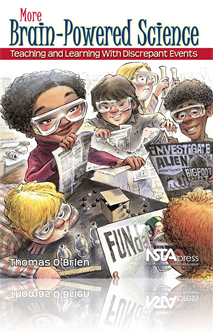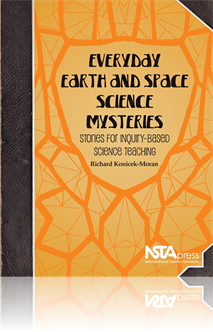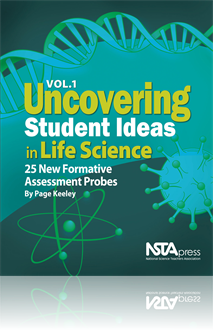All Book Chapters
Book Chapter
Pseudoscience in the News: Preposterous Propositions and Media Mayhem Matters
The nature of science (NOS) is to rely on empirical evidence, logical argument, and skeptical review, versus pseudoscience (e.g., astrology), which falsely claims scientific validity and credibility despite the weight of contradictory evidence. Both...
Book Chapter
Scientific Reasoning: Inside, Outside, On, and Beyond the Box
Direct observation, measurement, indirect evidence, and inferential reasoning are used to uncover nature’s patterns and their underlying logic. Scientists use both data interpolation and extrapolation, as well as new technologies, to find ways to p...
Book Chapter
Magic Bus of School Science: “Seeing” What Can’t Be Seen
Scientists use direct empirical and inferential evidence, logical argument, and skeptical review to formulate and evaluate hypotheses and tentative, provisionally accepted theories. In this activity, a simple line-sketch drawing of a school bus cues ...
Book Chapter
Reading Between the Lines of the Daily Newspaper: Molecular Magic
Although there is no single scientific method, scientists use the triple tests of empirical evidence, logical argument, and skeptical review to discover patterns in nature and explain their underlying reasons in terms of naturalistic theories that re...
Book Chapter
Pondering Puzzling Patterns and a Parable Poem
Students and teachers need playful experiences where they can develop the scientific inquiry skills of observation, pattern recognition, and inferential reasoning and prediction, as well as discover some of the perceptual and conceptual biases of hum...
Book Chapter
Astronomical rules are not always correct, especially when they use the word “always.” Students should learn that unless they live on or very near the equator, there are only two days in the year that the Sun rises directly in the east—the sp...
Book Chapter
What's the Moon Like Around the World?
A great deal of confusion arises from the lack of understanding about the Moon’s journey around the Earth and its apparent shape changes. This investigation is aimed at confronting this confusion by looking at the Earth-Moon system and how it appea...
Book Chapter
The purpose of this assessment probe is to elicit students’ ideas about infectious diseases. The probe is designed to reveal whether students recognize that antibiotics only work on bacterial infections, not viral infections....
Book Chapter
The purpose of this assessment probe is to elicit students’ ideas about the smallest parts of living and nonliving things. The probe is designed to determine how students distinguish between cells and atoms in living and nonliving contexts. ...
Book Chapter
The purpose of this assessment probe is to elicit students’ ideas about the plant structure where photosynthesis takes place. The probe is designed to reveal whether students recognize that food is made within the leaf of a plant. ...
Book Chapter
The purpose of this assessment probe is to elicit students’ ideas about living things. The probe is designed to determine whether students recognize that seeds are living when they are in a dormant state. ...
Book Chapter
The purpose of this assessment probe is to elicit students’ ideas about “plant food.” The probe is designed to reveal whether students recognize that plants use the sugars they make as their food. ...
Book Chapter
The purpose of this assessment probe is to elicit students’ ideas about the flow of energy in a trophic relationship that children are most familiar with—food chains. The probe is designed to find out if students recognize that most of the energ...
Book Chapter
The purpose of this assessment probe is to elicit students’ ideas about the transfer of matter and energy in ecosystems. The probe is designed to reveal whether students recognize that only matter is cycled through an ecosystem. ...
Book Chapter
The purpose of this assessment probe is to elicit students’ ideas about adaptation. The probe is designed to reveal whether students hold Lamarckian ideas about individual organisms adapting to changes in the environment. ...




